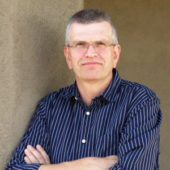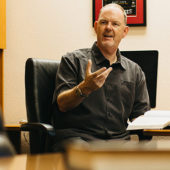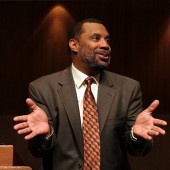“I feel like a whale.”
“The scale is lying.”
“If I just lose five more pounds, everything will be okay. Then I’ll feel loved and acceptable.”
How does the Gospel bring light to eating disorders? Lee Wolfe Blum is a health educator based in Minnesota as well as author of the book, Table in the Darkness. She joins Susie in studio to share her own powerful story of overcoming anorexia.
“My earliest memories were of not feeling good enough. Around the age of 12, when my parents got a divorce, I had a feeling that it was my fault. So I went on this mission to be perfect – quieter, better, a good girl. I started to diet and feel a sense of relief and numbness when I didn’t eat. It became like a drug for me.”
For Lee, not eating was an escape rather than a way to lose weight. It wasn’t long before the anorexia started to take over. “It spiraled out of control until I ended up in a hospital.”
What did Lee learn?
“An eating disorder is biological, psychological, and social. Not everyone who diets will develop an eating disorder, but all eating disorders start with a diet. For me, I had the genetic predisposition, I had an environment in college where all we were talking about was dieting, and an overwhelming set of emotional circumstances – trying to figure out who I was and having a deep sense of shame about not being good enough.”
Lee and Susie also unpack
• The distinction between an eating disorder and disordered eating.
• Why calling certain foods “bad” may be a poor choice of words.
• Common signs of an eating disorder.
• What makes treatment, and a registered therapist, effective.
• How to support a loved one or friend who is wrestling with an eating disorder.
• The stages of change and how that affects someone’s journey from addiction to healing.
Key Scriptures: Jeremiah 29:11; Psalm 107:20
Theme Song: Pour Your Spirit Out by Shannon Wexelberg
Highlight : Disordered eating vs. an eating disorder
God’s light in the midst of anorexia
This program has been previously aired.






















